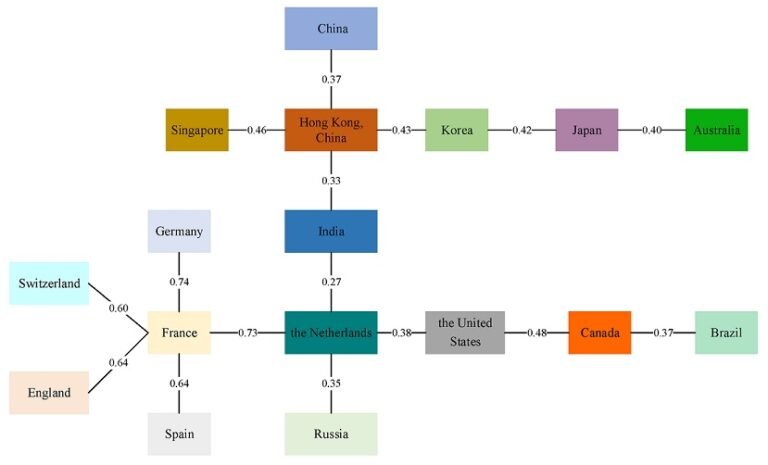The global energy landscape is undergoing a significant transformation, with a growing focus on cleaner and more sustainable sources of energy. Natural gas, often considered a transitional fuel in the shift towards a greener future, plays a pivotal role in this transition. As countries strive to their carbon footprint and promote energy security, strategic investments in the natural gas sector have become paramount. This article explores the dynamics of strategic investment in natural gas markets and the international spillovers that occur as a result.
The Significance of Natural Gas
Natural gas is a versatile fossil fuel which holds a crucial position in the global energy mix. It is abundant, widely distributed, and offers several advantages, including lower greenhouse gas emissions compared to coal and oil. Its application spans a range of sectors, from electricity generation and heating to industrial processes and transportation. As a result, natural gas is a fundamental component of many countries’ energy portfolios.
Strategic Investments in Natural Gas
Strategic investments in natural gas involve long-term planning and the allocation of resources to ensure a stable supply and efficient utilization of this resource. These investments can take various forms, including exploration and production, infrastructure development, and technology advancement. Here are some key aspects of strategic investment in natural gas:
- Exploration and Production: Investing in the exploration and production of natural gas reserves is the foundation of a secure supply. Countries or energy companies often engage in partnerships and agreements to gain access to new reserves or enhance existing production capabilities.
- Infrastructure Development: Building and maintaining infrastructure is crucial for transporting natural gas from production to users. This includes pipelines, liquefied natural gas (LNG) terminals, and storage facilities. Strategic investments in infrastructure enable efficient and reliable distribution.
- Technology Advancement: Advancements in technology, such as improved drilling techniques and more efficient gas processing, can significantly enhance the cost-effectiveness of natural gas production. Strategic investments in research and development contribute to innovation and sustainability.
- Diversification of Supply Sources: Relying on a single source for natural gas can pose risks, especially in the face of geopolitical tensions or supply disruptions. Diversifying supply sources through international partnerships and agreements is a key strategy in ensuring a stable supply of natural gas.
International Spillovers in Natural Gas Markets
The global nature of the natural gas market means that strategic investments in one region can have spillover effects on other regions. International spillovers refer to the economic, political, and environmental impacts that ripple through the interconnected natural gas markets. These spillovers can take various forms:
- Price Effects: Investments in the exploration and production of natural gas can affect global prices. Increased supply in one region may lead to a decrease in prices worldwide, benefiting consumers but potentially challenging the profitability of producers.
- Energy Security: Strategic investments that enhance the security and reliability of natural gas supply in one country can contribute to overall energy security at the regional and global levels. This can be especially critical in times of geopolitical instability or supply disruptions.
- Environmental Impacts: Efforts to reduce greenhouse gas emissions in one region can have global environmental spillovers. For instance, the expansion of natural gas as a cleaner energy source in one country can contribute to reduced emissions globally.
- Political Relations: International collaborations in the natural gas sector can foster diplomatic relations. Conversely, conflicts or disagreements related to natural gas investments can strain international relations.
Case Study: The United States and LNG Exports
To illustrate the dynamics of strategic investment and international spillovers in natural gas markets, let’s take a closer look at the United States and its role as a major LNG exporter.
Strategic Investments in the United States:
Over the past decade, the United States has made substantial strategic investments in its natural gas sector. The shale gas revolution led to a increase in domestic natural gas production. Infrastructure investments, including the construction of export terminals, enabled the United States to become a leading LNG exporter. Technological advancements also played a vital role, making extraction and processing more efficient.
International Spillovers:
- Price Effects: The surge in U.S. LNG exports had a notable impact on global natural gas prices. By increasing the global supply of natural gas, U.S. exports contributed to lower prices in various regions. This benefited energy consumers worldwide but put pressure on traditional gas exporters.
- Energy Security: U.S. LNG exports have provided additional sources of supply for countries seeking to diversify their natural gas sources. This has enhanced energy security in regions where dependence on a single supplier posed risks.
- Environmental Impacts: The shift towards natural gas in the United States, driven by the availability of shale gas, has contributed to reduced greenhouse gas emissions in the energy sector. This transition has had positive environmental spillovers by setting an example for other nations.
- Political Relations: The U.S. LNG export strategy has led to new diplomatic relations and partnerships with import-dependent countries. Conversely, it has also created tensions with some traditional gas suppliers and competitors.
Conclusion
Strategic investment in natural gas markets plays a vital role in securing energy supplies, promoting sustainability, and shaping global energy dynamics. The interconnected nature of the natural gas market ensures that these investments have far-reaching international spillovers, affecting prices, energy security, the environment, and diplomatic relations.
As the world continues to evolve towards a more sustainable energy future, understanding the intricacies of strategic investment and international spillovers in the natural gas industry becomes increasingly important. Countries and energy companies must carefully consider the consequences of their actions and collaborate on a global scale to ensure a reliable and environmentally responsible energy supply for the future.

